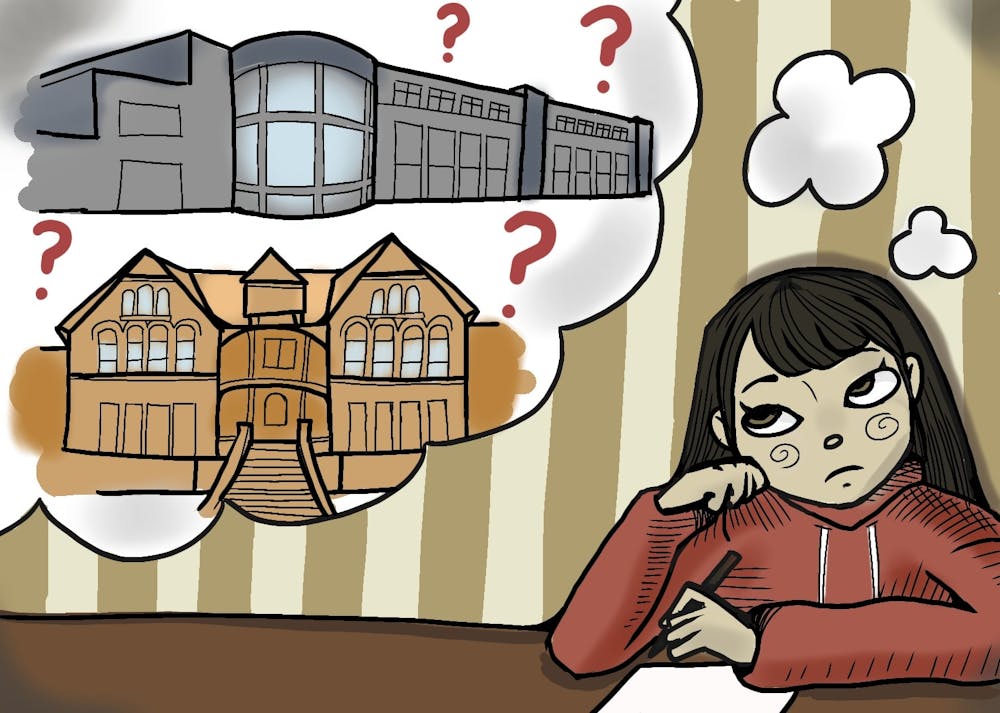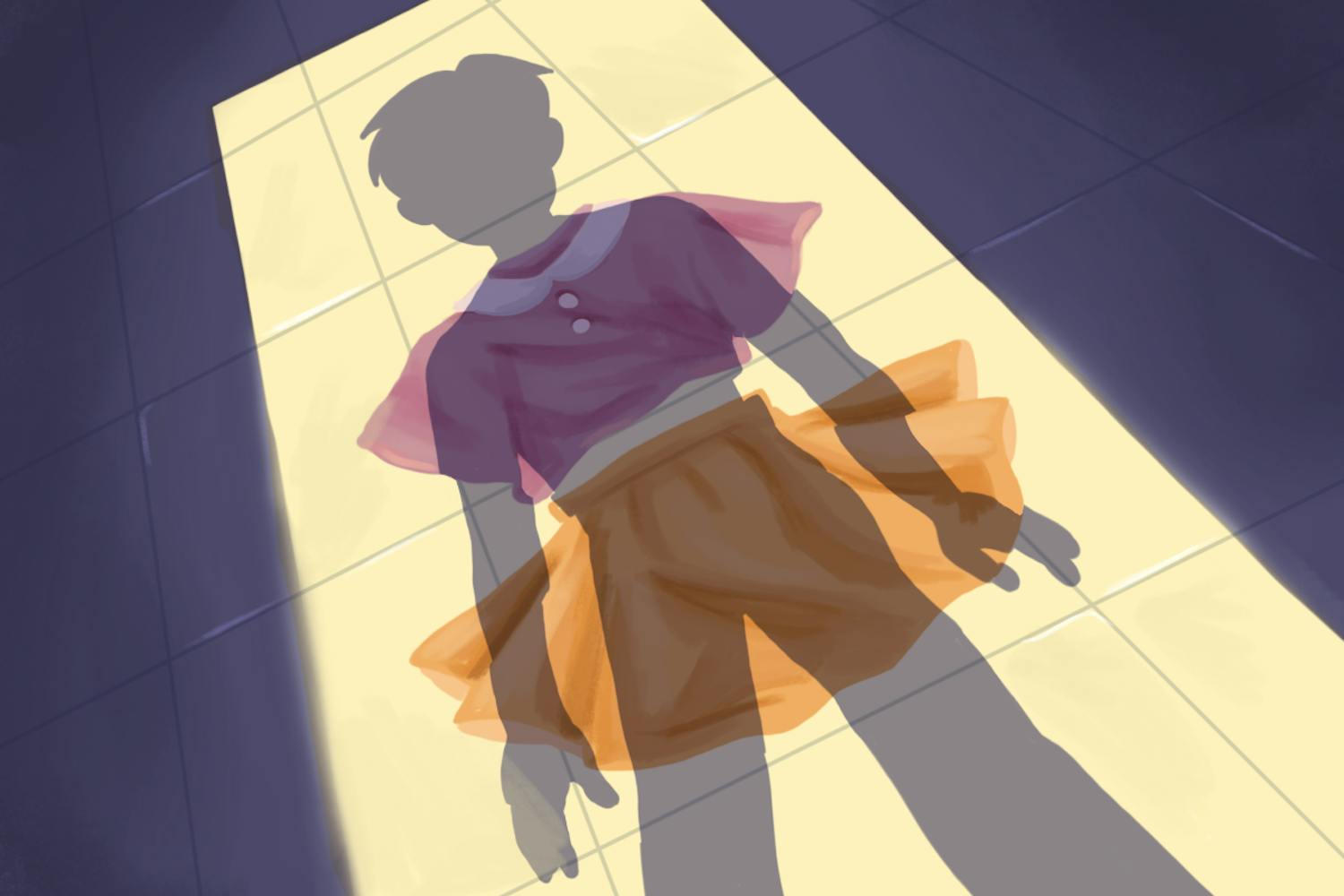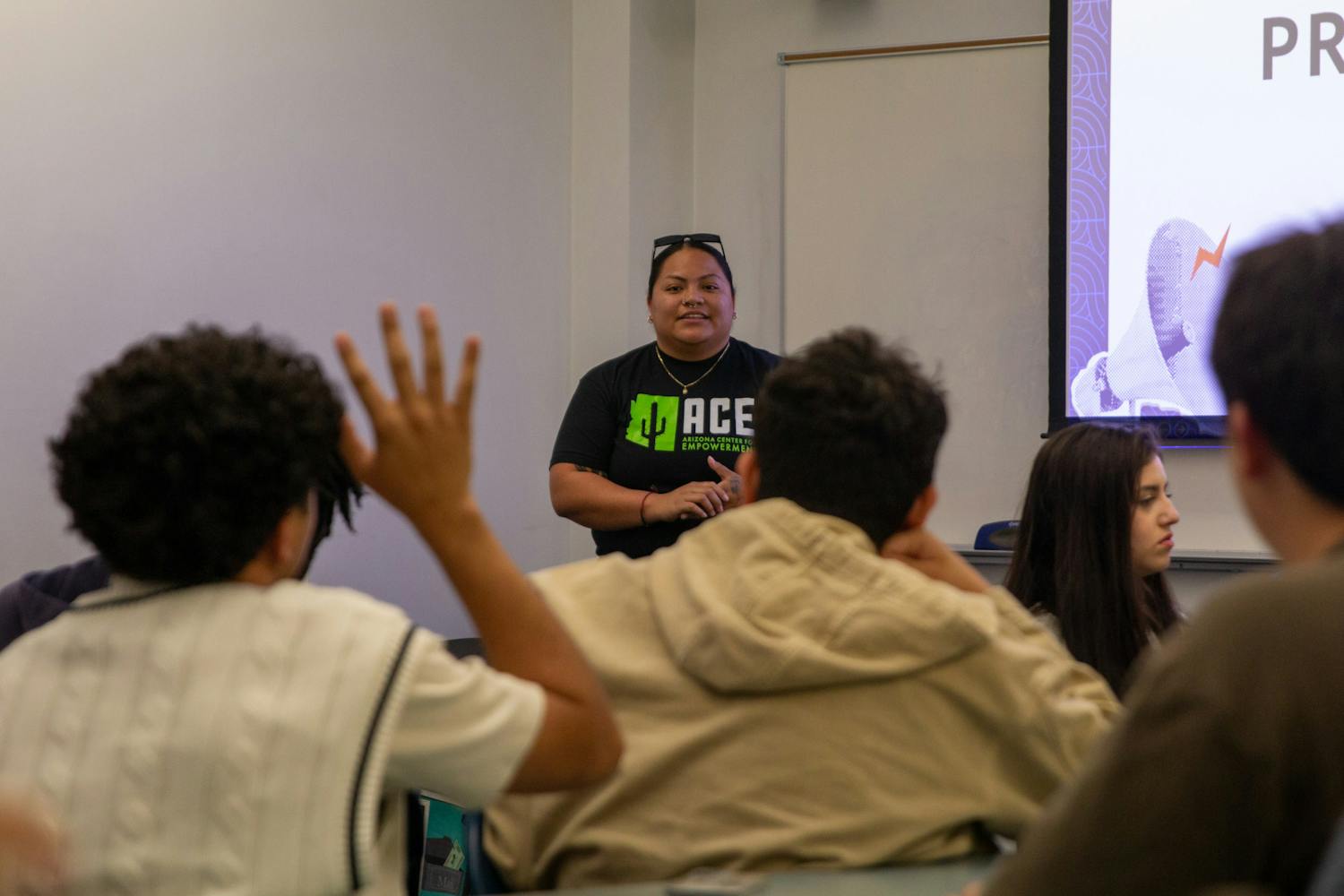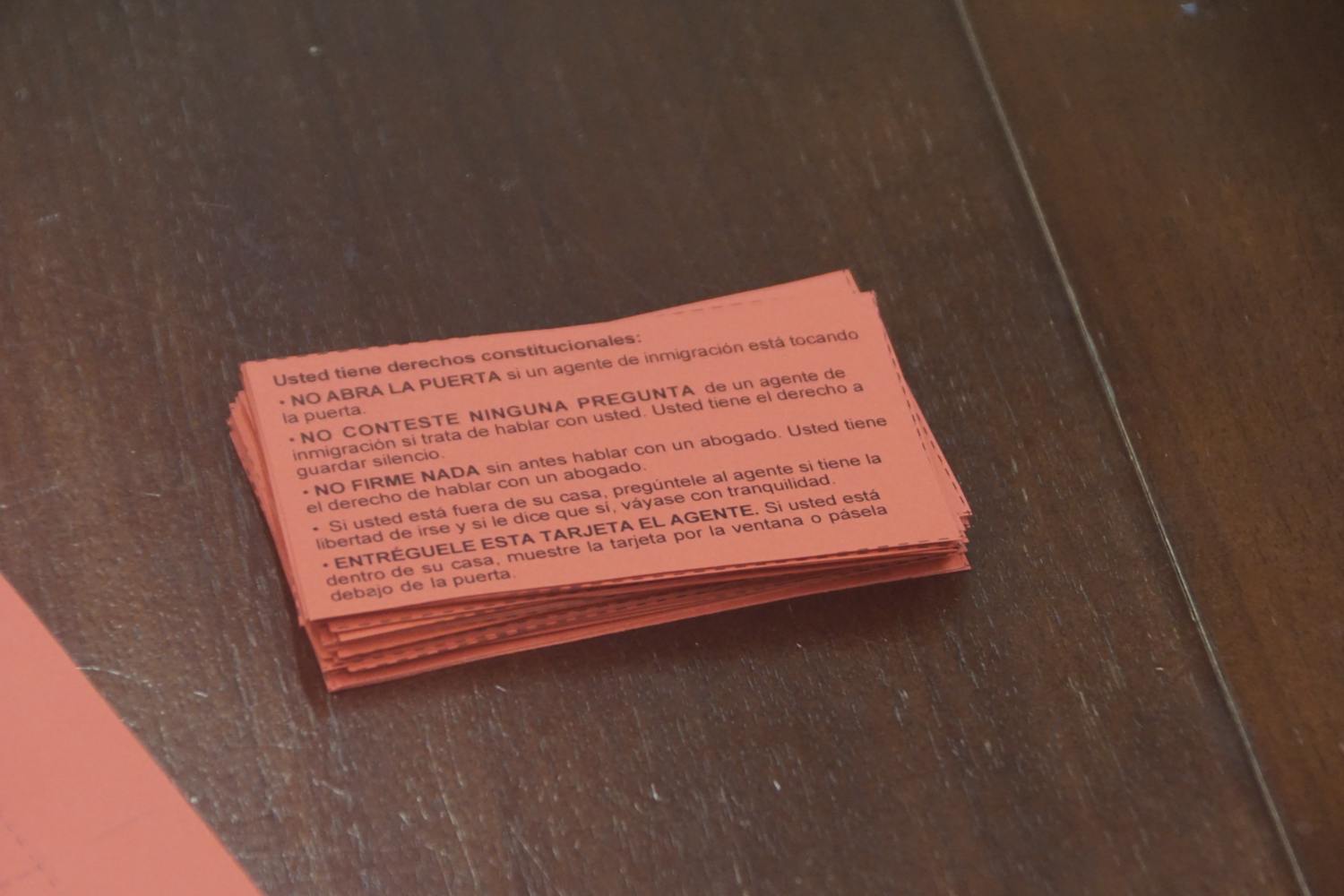Every year, ASU reaches a new record high in enrollment. And at the same time, Arizona faces a consistent decline in the rate of high school graduates attending college.
In response, ASU has a series of strategies under its belt such as programs and partnerships with local high schools to encourage high school graduates to attend a university. ASU offers a wide variety of partnerships state-wide, including ASU Preparatory Academy, the Arizona Promise Program and Access ASU.
“I think the biggest transition from high school to college is not knowing what you want to do with the rest of your life in high school,” said Patrick Leahy, a first-generation student and a junior studying both French and English.
“And then once you’re in college, you have to make that decision about where you want to direct your interests toward," Leahy said.
Conversations similar to Leahy’s experience have taken place across the nation, a Hechinger Report article reads, as more and more high school students decide they don't want to pursue higher education, leaving colleges scrambling to find solutions to grow or even keep enrollment up.
The national rate of high school graduates immediately attending college was 66% in 2019, pre-pandemic, and 61% in 2021.
The situation is worse in Arizona.
High school graduates in the state moving on to attend college have steadily declined over the past few years, the Arizona Board of Regents' 2021 Postsecondary Attainment Report reads.
In 2017, 55% of Arizona high school graduates immediately attended a two-year or four-year college. This percentage dropped to 46% in 2020.
ABOR's report attributes the 2020 decline to the COVID-19 pandemic. However, the report notes, "Arizona’s college enrollment was not keeping pace with the rest of the country before the pandemic."
“With the time of COVID going on, I was scared to go straight to university,” said Ava Rice, a former community college student, now a junior studying gender, women and sexuality at ASU.
“I just was not ready to be thrown into that, so I went to community college,” Rice said.
While the rate of Arizona high school graduates attending college has declined, ASU has instead seen a constant increase in enrollment rates since 2010.
ABOR Chair Lyndel Manson attributes ASU's steady increase in enrollment rates to their K-12 outreach and Arizona's low rates of high school graduates attending college to the COVID-19 pandemic.
“The college rate has been low for some time," Manson said. "I think the impact that you’re seeing is really directly related to COVID. I would expect to see a turnaround of that trend."
Important to the University's efforts is Access ASU, an initiative focused on increasing access to higher education for Arizona students.
Alex Perilla, director of Access ASU Family, said programs under Access ASU like WeGrad help encourage high school students to attend college as they "work with the entire family to help parents understand that they have the power to help their children to succeed academically in school and succeed in college."
“The earlier you get that information to students the likelier they are to avoid creating barriers for themselves and understanding the access they have to schools in Arizona," Manson said.
With the WeGrad program, ASU partners with multiple phoenix metropolitan schools like Maricopa Institute of Technology, ASU Preparatory Academy and more to "provide opportunities for the students to tour ASU and meet other students who have completed college,” Perilla said.
ASU will also be launching a pilot two-year Associate of Arts degree in professional studies. The pilot program is currently only offered to a limited number of high school students, but will be offered more broadly if the program is successful, the spokesperson said.
Leahy said services like Access ASU initiatives give students an expanded time frame to "choose" and "explore a little bit of every program ASU has to offer" through resources such as class refreshments.
"ASU in particular has outreached to a large percentage of our high schools in our state whether it’s through people embedded in our schools, digital outreach, or digital teaching assistance," Manson said. "They have a very significant outreach on the K-12 program.”
Edited by Jasmine Kabiri, Wyatt Myskow, Kristen Apolline Castillo and Sophia Balasubramanian.
Reach the reporter at mald1@asu.edu and follow @mason_ald on Twitter.
Like The State Press on Facebook and follow @statepress on Twitter.




